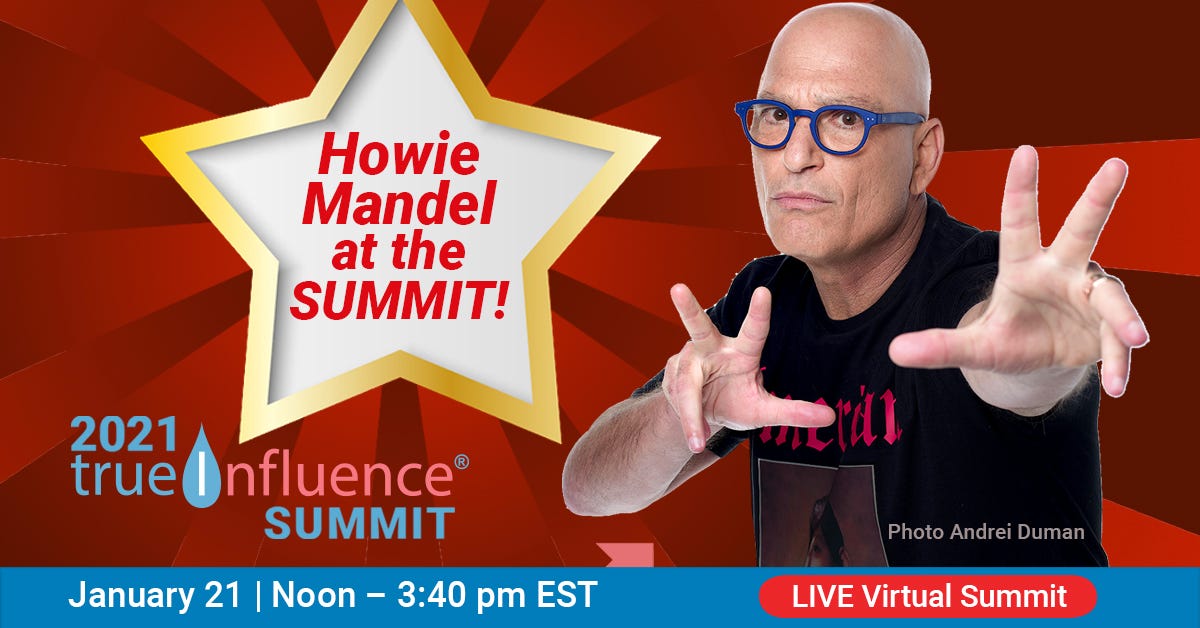#149: Marketing (isn’t) everything, lessons from a potato, trust in 2021, failed chatbot revolution, an end to user tracking…
Oh my.
Happy Friday
In this edition of The World’s Best Newsletter:
1 - The Reality of Brand Management
2 - 2021 Trust Barometer is Live
3 - The Big CRM Problem
4 - Lessons From The Failed Chatbot Revolution
5 - A Lesson for Social Media Marketers from Taco Bell’s Potato CEO
6 - Why This Co Won’t Track Website Users
7 - Quote of the week: Just efforts to buy time
1 - The Reality of Brand Management
Despite the impact of cancel-culture, within a time of frantic brand monitoring and reputation management... I'm constantly reminded of a quote from Andy Warhol in 1980:
"Don't pay any attention to what they write about you. Just measure it in inches.”
(Newspaper inches.)
The deliciously frank Mark Ritson is out with a new piece about the real impact of overly-crafted brand image efforts:
"Over the past decade marketers have come to learn that, rather than just the gateway, coming to mind and being present in the consumer’s consciousness during decision-making is most of the house and the back garden too...
The superiority of salience reflects a growing awareness that, in the age of Trump, what people think of you is far less important than the more brutal objective of getting people to think about you."
I agree with that. And, this:
"We overthought things and made the cardinal error of assuming brands were as big for consumers as they were for us marketers.”
Someone once said this, or maybe I dreamt it:
Everything is marketing, but marketing isn't everything.
Read Mark’s full piece in MarketingWeek.
2 - 2021 Trust Barometer is Live
Is it weird to have a favorite annual research study?
Well, this is mine.
Edelman’s 2021 Trust Barometer is out and I am digging into it. Read the findings on the state of trust in our institutions - it’s more important than ever in an age of disinformation and polarization.
3 - The Big CRM Problem
In the latest episode of Experience TV with Oracle CX Cloud, I sat down with CRM industry expert, Denis Pombriant of Beagle Research.
You can read/watch the full recap here.
CRM tools may have digitized what used to be manual processes, back in the day, but are they enough for an age of digital selling?
In the full episode, I explore why sellers are working harder than ever, but their CRM systems might be holding them back.
I especially loved this portion of the interview:
Q: What’s going to make a seller want to use a CRM tool?
A: Better CRM tools.
4 - Lessons From The Failed Chatbot Revolution
And 7 Industries Where The Tech Is Making A Comeback
via CB Insights:
In 2016, chatbots were all the rage… for many, it seemed that chatbots might be the next big disruptive technology.
Thousands of companies commissioned their own chatbots in anticipation.
In the end, though, the expected paradigm shift didn’t happen.
… while many chatbots didn’t meet users’ high expectations, they haven’t entirely fallen short.
Key takeaways from the ‘chatbot revolution’:
Tasks: Chatbots are best at repetitive tasks, not novel ones
Complementary approaches: Most chatbots work best alongside GUIs
Data: Chatbots are best at dealing with structured but limited information
PS: For another POV on chatbots, hear from Grad Conn, Chief Experience Officer at Sprinklr and former Microsoft GM and CMO - read/watch his take on Experience TV episode 2, on-demand.
5 - A Lesson for Social Media Marketers from Taco Bell’s Potato CEO
(What is that sentence I just typed?)
Taco Bell posted a video with its CEO as a potato - no harm, no foul, love a good spud.
The issue was accessibility and a default lack of captioning - highlighted by another social media manager, one of the toughest gigs in an age of cancel-culture and instant brand response strategy.
Alexa Heinrich writes in AdWeek:
…one thing that was noticeably missing from Taco Bell’s announcement on the potato comeback was captioning. Neither closed nor open captions were used in the final video.
Some users were quick to point out that this wasn’t just a marketing fail—it’s a widely recognized fact that 85% of videos on the internet are watched with sound off—but an accessibility fail as well.
According to the World Health Organization (WHO), roughly 466 million people around the world are deaf or hard of hearing. Captioning is a necessity to these individuals when it comes to consuming videos, and forgetting to add subtitles is akin to forgetting a significant portion of your audience.


The video’s been updated and re-posted, and with the call-out, there’s mutual respect for all involved:

(I love this style - let’s hold each other accountable w/ respect for the job at hand.)
The topic of accessibility is an oft-overlooked part of the broader discussion about diversity and inclusivity, and it’s one I’ll be addressing more soon with my friends at Perkins Access. Read their tips for accessibility on social media and their guide to gorgeous accessible design.
6 - Why This Co Won’t Track Website Users
The winds have, and are continuing to shift when it comes to the best practices for protecting the privacy of individuals online. At thoughtbot, we’ve decided to remove individual tracking in an effort to be a good steward of internet privacy.
Shoutout to CMO Lindsey Christensen and the team for this transparent, honest and proactive approach to making this decision. Tracking has become a default for marketers used for retargeting, lead tracking, analytics, and more.
Much modern marketing tech relies on it. thoughtbot removed Google tracking as well as Hubspot, Segment.com and Intercom’s 3rd-party services. How many tools in the dizzying martech landscape would survive if companies followed the lead of thoughtbot?
Every brand can learn from their process here, as the decision was made in accordance to the team’s stated values. (Which are also worth a read.)
7 - Quote of the week: Just efforts to buy time
As banks, brands and business leaders respond in real-time to the events at the U.S. Capitol, cutting donations to politicians and blocking related use of their platforms and services, I am tuned in to the reporting of Judd Legum.
He has been following the money, tracking how corporate America is responding to this moment by pulling political donations:
“Some of these announcements are genuinely significant. Others are just efforts to buy time.” - Judd Legum, editor of Popular Information


Read more in a new Bloomberg feature and subscribe to Judd’s newsletter here.
The issue at the forefront of my mind as I watch this play out is:
Brands and tech platforms knew of the divisive, offensive, dangerous values this campaign and candidate stood for well before the events at the Capitol. But, it took what could-have-been-far-worse insurrection to convince them to act. At this point, making a decision is part of a domino effect. That’s not bravery, that’s PR.
Thanks for reading as always, and have a great weekend.
Katie
Bonus content
The Future of Video in B2B
I did a ton of video in the virtual year that was 2020 and my favorite streaming tool Socialive asked what I learned.
I think I know less than when I started TBH. But, I encourage brands to keep experimenting.
While the "rulebook" is somewhat timeless (be relevant, be useful, differentiate, delight people, find the stories, etc) the medium is constantly changing.
Me and a bunch of other smart people offer tips for using video for B2B social media marketing in 2021. Check it out!
Free event: Accelerating Revenue in Uncertain Times
The team at True Influence have put together a great lineup of B2B sales and marketing content on Thursday, January 21st focused on reaching the modern B2B buyer. Register here for this free, live event.
It features Forrester’s Laura Ramos, Brian Solis, and leaders from Honeywell, OpenText, HPE, and ViacomCBS - with special guest, Howie Mandel!
The Relentless Quest for Brand Authenticity with Grad Conn, CXO of Sprinklr
The search for authenticity drives many of our decisions, including our brand choices. We’re all hoping for those elusive, authentic experiences.
In Part 2 of my discussion with Katie Martell we dive deep into performative brand allyship, the dangerous illusion of progress, and the unexpected benefits of an alien invasion.
We finish up with a look at how brands can best demonstrate true authenticity. Spoiler alert: it’s more than feel-good ads and woke-washed social media posts.










